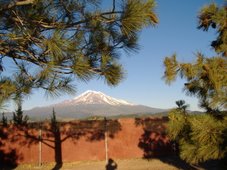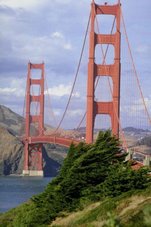Economics versus Politics
By Frank Chodorov
Posted on 4/3/2007
Subscribe at email services, tell others, or Digg this story.This article is excerpted from Chapter 1 of The Rise and Fall of Society.

It may be that wary beasts of the forest come around to accepting the hunter's trap as a necessary concomitant of foraging for food. At any rate, the presumably rational human animal has become so inured to political interventions that he cannot think of the making of a living without them; in all his economic calculations his first consideration is, what is the law in the matter? Or, more likely, how can I make use of the law to improve my lot in life?
This may be described as a conditioned reflex. It hardly occurs to us that we might do better operating under our own steam, within the limits put upon us by nature, and without political restraints, controls, or subventions. It never enters our minds that these interventionary measures are placed in our path, like the trap, for purposes diametrically opposed to our search for a better living. We automatically accept them as necessary to that purpose.
And so it has come to pass that those who write about economics begin with the assumption that it is a branch of political science. Our current textbooks, almost without exception, approach the subject from a legal standpoint: how do men make a living under the prevailing laws? (Entrepreneurs, I know,look to the grey, barely legal areas where laws and regulations are few and illenforced for opportunity-AJ) It follows, and some of the books admit it, that if the laws change, economics must follow suit. It is for that reason that our college curricula are loaded down with a number of courses in economics, each paying homage to the laws governing different human activities; thus we have the economics of merchandising, the economics of real-estate operations, the economics of banking, agricultural economics, and so on.
Economics is not politics. One is a science, concerned with the immutable and constant laws of nature that determine the production and distribution of wealth; the other is the art of ruling. One is amoral, the other is moral. Economic laws are self-operating and carry their own sanctions, as do all natural laws, while politics deals with man-made and man-manipulated conventions. As a science, economics seeks understanding of invariable principles; politics is ephemeral, its subject matter being the day-to-day relations of associated men. Economics, like chemistry, has nothing to do with politics.The intrusion of politics into the field of economics is simply an evidence of human ignorance or arrogance, and is as fatuous as an attempt to control the rise and fall of tides. Since the beginning of political institutions, there have been attempts to fix wages, control prices, and create capital, all resulting in failure. Such undertakings must fail because the only competence of politics is in compelling men to do what they do not want to do or to refrain from doing what they are inclined to do, and the laws of economics do not come within that scope. They are impervious to coercion. Wages and prices and capital accumulations have laws of their own, laws which are beyond the purview of the policeman.
The assumption that economics is subservient to politics stems from a logical fallacy. Since the state (the machinery of politics) can and does control human behavior, and since men are always engaged in the making of a living, in which the laws of economics operate, it seems to follow that in controlling men the state can also bend these laws to its will. The reasoning is erroneous because it overlooks consequences.(Witness the current budget proposed by Democrats-AJ) It is an invariable principle that men labor in order to satisfy their desires, or that the motive power of production is the prospect of consumption; in fact, a thing is not produced until it reaches the consumer. (And a price is not a price until it is agreed by willing buyer and willing seller-AJ)
Hence, when the state intervenes in the economy, which it always does by way of confiscation, it hinders consumption and therefore production. The output of the producer is in proportion to his intake. It is not willfulness that brings about this result; it is the working of an immutable natural law. The slave does not consciously "lay down on the job"; he is a poor producer because he is a poor consumer. (Or welfare recipient who has been marinalized and warehoused by a "caring" society-AJ)
The Welfare State is in fact an oligarchy of bureaucrats who, in return for the perquisites and prestige of office, undertake to confiscate and redistribute production according to formulae of their own imagination, with utter disregard of the principle that production must fall in the amount of the confiscation. It is interesting to note that all welfarism starts with a program of distribution — control of the market place with its price technique — and ends up with attempts to manage production; that is because, contrary to their expectations, the laws of economics are not suspended by their political interference, prices do not respond to their dicta, and in an effort to make their preconceived notions work they apply themselves to production, and there too they fail.
The story of the American state is instructive. Its birth was most auspicious, being midwifed by a coterie of men unusually wise in the history of political institutions and committed to the safeguarding of the infant from the mistakes of its predecessors. Apparently, none of the blemishes of tradition marked the new state. It was not burdened with the inheritance of a feudal or a caste system. It did not have to live down the doctrine of "divine right" nor was it marked with the scars of conquest that had made the childhood of other states difficult. It was fed on strong stuff: Rousseau's doctrine that government derived its powers from the consent of the governed, Voltaire's freedom of speech and thought, Locke's justification of revolution, and, above all, the doctrine of inherent rights. There was no regime of status to stunt its growth. In fact, everything was de novo. (Note the word "was". Things have changed-AJ)
Every precautionary measure known to political science was taken to prevent the new American state from acquiring the self-destructive habit of every state known to history, that of interfering with man's pursuit of happiness. The people were to be left alone, to work out their individual destinies with whatever capacities nature had endowed them. Toward that end, the state was surrounded with a number of ingenious prohibitions and limitations. Not only were its functions clearly defined, but any inclination to go beyond bounds was presumably restrained by a tripartite division of authority, while most of the interventionary powers which the state employs were reserved for the authorities closer to the governed and therefore more amenable to their will; by the divisive principle of imperium in imperio it was forever, presumably, deprived of the monopoly position necessary to a state on the rampage. Better yet, it was condemned to get along on a meager purse; its powers of taxation were neatly circumscribed.(Well it was a good idea at the time. Some still think so-AJ) It did not seem possible, in 1789, for the American state to do much in the way of interfering with the economy of the nation; it was constitutionally weak and off balance.(On purpose. It was supposed to remain so. However, we humans like stabliliity and predictability for those in power-AJ )
The ink was hardly dry on the Constitution before its authors, now in position of authority, began to rewrite it by interpretation, to the end that its bonds would loosen. The yeast of power that is imbedded in the state was in fermentation. The process of judicial interpretation, continued to the present day, was later supplemented by amendment; the effect of nearly all the amendments, since the first ten (which were written into the Constitution by social pressure), was to weaken the position of the several state governments and to extend the power of the central government. (When was the last time you heard of a fight over "States Rights"?-AJ) Since state power can grow only at the expense of social power, the centralization which has been going on since 1789 has pushed American society into that condition of subservience which the Constitution was intended to prevent.
Frank Chodorov (1887–1966) was a journalist of the Old Right. Murray Rothbard wrote, "The outstanding disciple of his beloved mentor, the great libertarian Albert Jay Nock, Frank Chodorov, again unlike his 'libertarian' colleagues, never forgot for an instant that the State is the great predatory enemy of the human race, that the State is, in its very being, the organization and regularization of predation, exploitation, and robbery." Comment on the blog. ( Go visit-AJ)
I dislike quoting so much. I worry about copyright and infringement. I also worry about long posts boring the reader.... However, when a topic comes around that is so pertinent and germane to the major issues of our daily headlines, I feel the need to share.



No comments:
Post a Comment